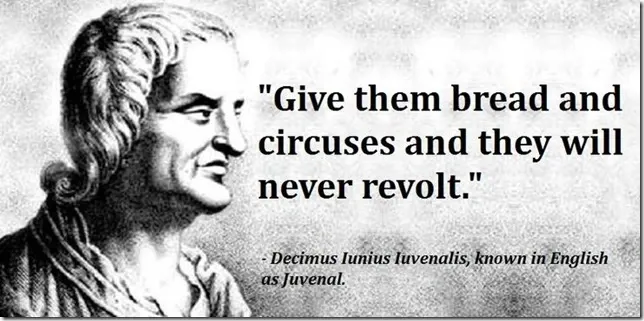By Anjali Robinson-Leary
In this essay, the political movement of Africans in America is referred to as Black Americans, as the Black Power Movement has significantly declined. An analysis of the recent context, particularly in the digital age, reveals where the turning point occurred, affecting former high points of Black life and progress—especially in art, intellectual culture, and radical consciousness. While some Black Americans have been elevated to positions of Black misleadership and the middle class, others have been conditioned to be disinterested in the movement altogether.
Black American liberation efforts have become complacent. Year after year, the cultural unity that seemingly rooted itself so profoundly in the 1960s, '70s, and '80s has left fewer and fewer traces in the current soil. There is already much thought asking and partially answering why the Black American liberation struggle has become complacent and/or repetitive, but the Roman poet Juvenal might offer something new. Though centuries old, what he wrote is ever relevant and even reflects the present state of Black America:
"...for the People who once upon a time handed out military command, high civil office, legions— everything, now restrains itself and anxiously hopes for just two things: bread and circuses." (Toner, 1998, p.69)
Juvenal argued that if people are given a pacifier like "bread and circuses," they will never revolt. Have Black Americans become complacent with the few bones thrown at them by America to quiet their once revolutionary cries? Or, have Black Americans been disillusioned by our neutralized efforts to effectively organize because of government retaliation?
In the 20th century, revolutionaries in Barbados faced similar challenges. The Black Nationalist People's Progressive Movement published a newspaper called Black Star, edited by Leroy Harewood. The internationalist paper covered local Barbadian issues, news, and world events to show solidarity with activists like Marcus Garvey. The writers aimed to stimulate people's minds by highlighting the contradictions between what they deserved as human beings and what they actually experienced. They promoted self-knowledge through Pan-African and socialist teachings to expose these contradictions.
In June of 1969, Black Star published "A Vote to Break Our Own Necks" in response to the people's election of Errol Barrow over a socialist candidate,
"Never before in the history of this island had a political party done so much to open the eyes of the people to the harsh realities of life. Yet they refused to wake, to move forward...What we of the PPM tried to do was to make the people understand the truth and to strip away all pretense and make-believe. We failed not because we are wrong, but because of the deep "inferiorisation" of our people. And in this respect, the people have also failed."
Currently, Black Americans are facing similar challenges. However, their situation might not be directly attributed to the "deep interiorization," as mentioned in the case of Barbados. Instead, they have been compelled to accept their position in the world and have been indoctrinated with capitalist beliefs. This has led them to believe that they, too, can achieve wealth by working hard and being individualistic while also making them feel that acts of kindness are not appreciated and causing them to doubt their own power due to the effects of colonialism.
The condition of the majority of Black Americans sits on a fence built by the colonists, on the lawn of the colonists, in the neighborhood of the colonists. One lawn is pulling for electoral passion while the other lawn seeks to make Black Americans disinterested in the system holistically, all benefiting the structure. The survivalist character forced onto Black Americans comes from the need for individualism created by their oppressors. The necessity of individualism and survivalism serve the role of preserving capitalism and are marketed to Black Americans through prosperity gospels and self-help books on how to think and die rich.
Despite the influence of colonialism, Black Americans possess a latent radical potential, and transforming their circumstances depends on shattering the constraints imposed on their creativity by colonialism. As a community, Black Americans have greater resources available to support each other than ever before in history. However, they have not achieved the same revolutionary accomplishments as their predecessors. For instance, while Fred Hampton had limited resources to provide free meals to children in Chicago, he could still make the program successful. Compared to today, there is technology available to create low-cost or free food, but it is not being utilized for political organization or any revolutionary fashion. Similarly, Mutulu Shakur had limited access to natural resources to implement ancient healing practices to help heal the addiction problems facing Black Americans in his community. However, even though access to natural resources has become more accessible, these resources are not being used in a similarly revolutionary manner.
It is crystal clear at this point that the issue is not about what Black Americans have and do not have. The issue is beyond the haves and the have-nots, emphasized by the soaring Black middle class. The challenge faced by Black Americans, placed on them by the oppressor, has pushed past their literal needs and has become immaterial. The oppression has become immaterial, a manufactured lack of interest in liberation. James Baldwin referred to it when he said he was "terrified at the moral apathy, the death of the heart."
He could not have predicted that there would be a full-scale attack on the moral engagement of Black Americans to the present, forcing a disconnect with the radical tradition of Black America. Today, Black Americans are smothered with a 24/7 stream of videos, news, and literature that tries to bait their emotions to keep them in a state of paralysis. Black Americans need new tools and strategies to face their oppressor and sufficiently complete the destiny of liberation. Between the deconstruction of past Black liberation movements and the full-scale media assault by the capitalist class meant to grind the revolution to a halt, the question facing the struggle now is how can they engage in a cultural shift that gets the people to prioritize more than bread and circuses?
The duty of the organizers of the revolution is crystal clear. The work to convince families, friends, and coworkers to expand their political understanding cannot be tainted, as it often is, by savior-complexes and condescending speeches. Organizers should not assume the role of paternalists but rather the role of architects. Organizers are responsible for building a culture that enables the people to make connections and realize that everything rests on them. Organizers are responsible for pushing the people to assume their independence outside of the manufactured one under bread and circuses. The people's independence should be collective but not identical, which means that everyone understands the end goal, but not everyone knows how to get there. At this point, the people will come together, compare notes, and force themselves forward. We just can't take everybody with us.
So where does this leave the condition? The modern organizer is burdened more heavily than ever. They must merge the forces from history and from the present to do their part in helping the people fulfill their destiny. A Moroccan proverb describes one continuous historical force, "There is no beauty but the beauty of action." The role of the organizer is not reserved for a singular type of person; it is for everybody who engages or is interested in pushing the people forward -- and the more, the merrier.
The organizers must take action, and all action for the people's betterment is needed, from conversations with our immediate communities to designing the blueprints for after the imminent revolution to engaging in direct local struggles like protests and resistance to state violence. Local progress will lead to collective contributions to the larger struggle, leading to autonomous communities that rely on the people for stability instead of the oppressor. Collectively, the organizers must evolve their strategies beyond protest and militarization; the digital age requires a digital analysis and, therefore, a digital struggle. Organizers must adapt to the new conditions that create new struggles, even if that means letting go of older methods.
Works Cited
Toner, J. P. (1998). Leisure and Ancient Rome. Polity.
Anjali Robinson-Leary is an undergraduate student from Philadelphia at Howard University. This article was first published by The Ginger Root, a youth-led, decolonial Pan-Africanist for which Anjali writes. Anjali is passionate about fighting for solarpunk futures through a queer Black feminist, decolonial Marxist framework. Outside of leftist writing, Anjali enjoys creative writing and making music. Reach out on Instagram @anjkyd or on Linkedin: https://www.linkedin.com/in/anjalirobinsonleary444

